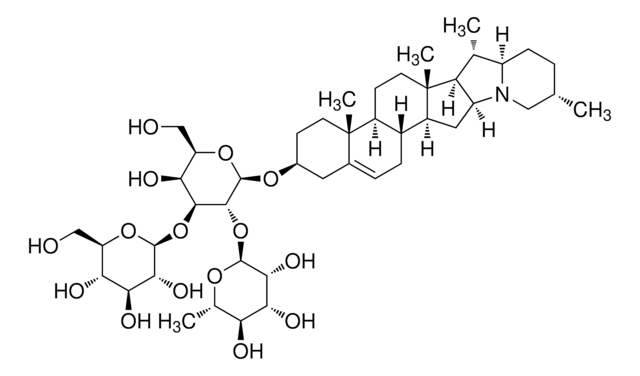T2815
Transforming Growth Factor-β2 human
TGF-β2, recombinant, expressed in NSO cells, powder, suitable for cell culture
Sinónimos:
hTGF-β2, TGF-β2
About This Item
Productos recomendados
biological source
human
Quality Level
recombinant
expressed in NSO cells
assay
≥97% (electrophoresis)
form
powder
potency
0.04 ng/mL ED50
quality
endotoxin tested
mol wt
25 kDa
packaging
pkg of 10 μg
pkg of 2 μg
storage condition
avoid repeated freeze/thaw cycles
technique(s)
cell culture | mammalian: suitable
impurities
≤1 EU/μg
suitability
suitable for
UniProt accession no.
storage temp.
−20°C
Gene Information
human ... TGFB2(7042) , TGFBR2(7048)
¿Está buscando productos similares? Visita Guía de comparación de productos
General description
Application
Biochem/physiol Actions
Physical form
Analysis Note
Storage Class
11 - Combustible Solids
wgk_germany
WGK 3
flash_point_f
Not applicable
flash_point_c
Not applicable
ppe
Eyeshields, Gloves, type N95 (US)
Certificados de análisis (COA)
Busque Certificados de análisis (COA) introduciendo el número de lote del producto. Los números de lote se encuentran en la etiqueta del producto después de las palabras «Lot» o «Batch»
¿Ya tiene este producto?
Encuentre la documentación para los productos que ha comprado recientemente en la Biblioteca de documentos.
Los clientes también vieron
Material in a Rabbit Model
Nuestro equipo de científicos tiene experiencia en todas las áreas de investigación: Ciencias de la vida, Ciencia de los materiales, Síntesis química, Cromatografía, Analítica y muchas otras.
Póngase en contacto con el Servicio técnico







